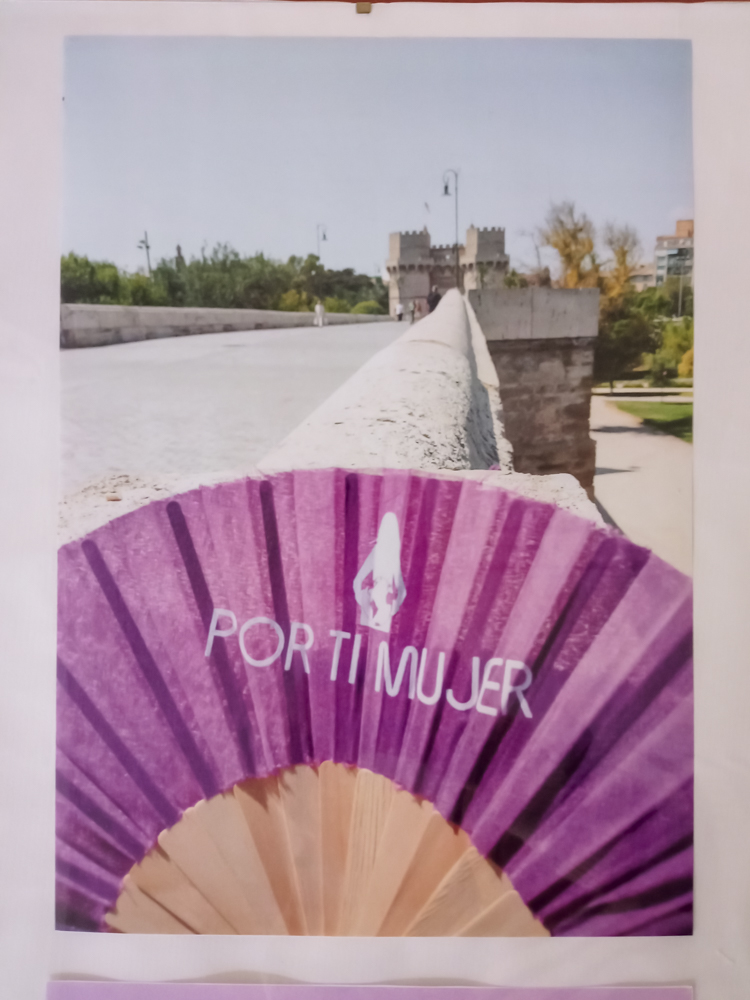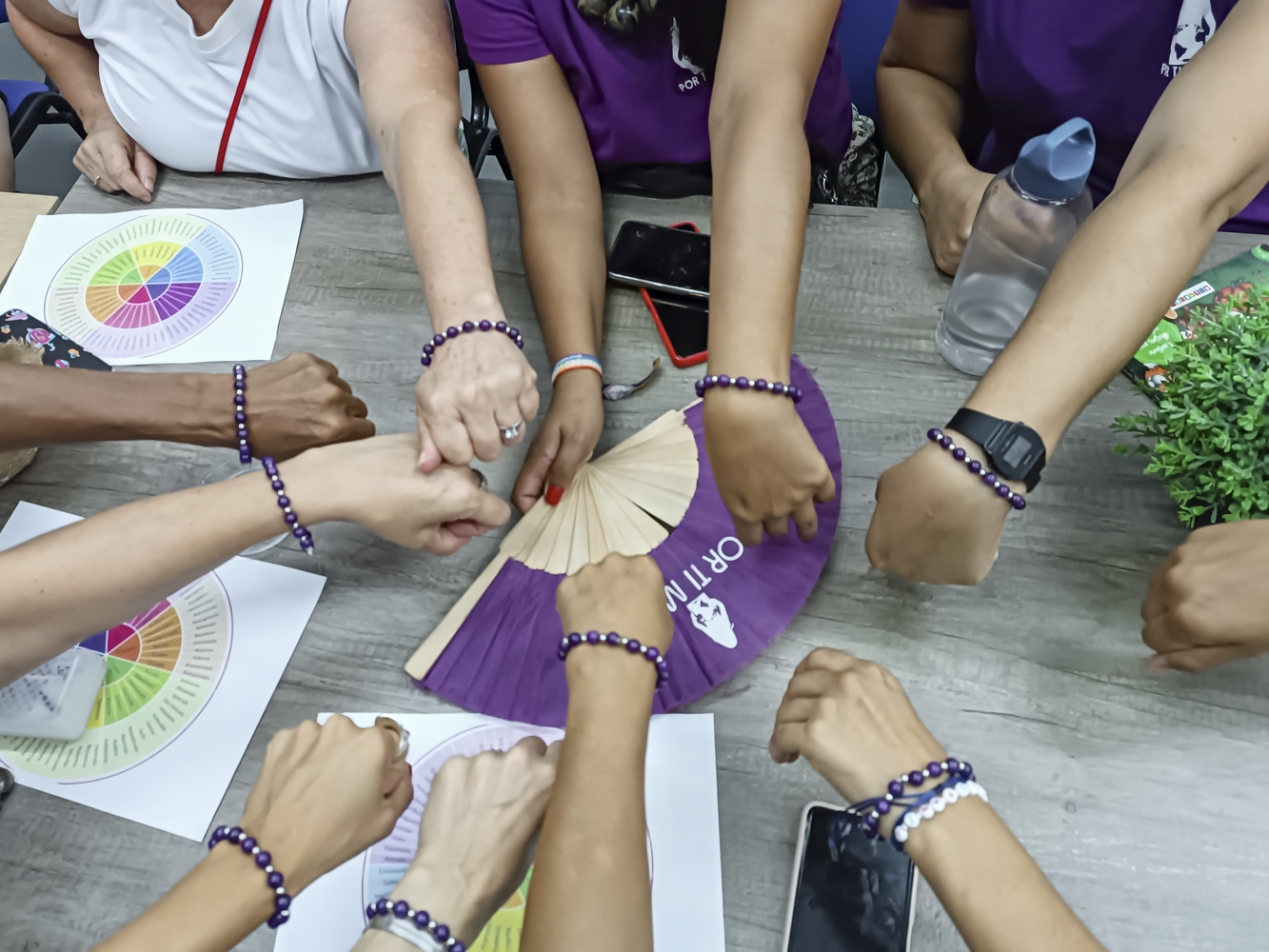
Empowered Spaces
Text and photos by Mariam Narváez
Human mobility is a reality that has existed since prehistoric times, driven by choice and/or necessity. It represents a courageous expression of individual determination, overcoming adversity, and seeking a better life. However, today, free movement has ceased to be a right and has instead become an activity controlled, sanctioned, and repressed by border control.
Humanity has been subjected to the division between North and South, empire and colony, marked by a Eurocentric worldview and a legal framework that, instead of protecting, limits, restricts, and violates the rights of immigrants. They are unable to move freely or with dignity, often facing precarity both upon departure and arrival in the “host” country.
Migration is not merely traveling to another destination or packing one’s life into a suitcase; it is the act of restarting one’s life, often from “scratch,” with countless expectations and the necessary motivation to pursue a better life. But what happens when those expectations are not met? What becomes of the suitcase full of dreams when reality hits us head-on, and we encounter a series of social and institutional barriers preventing us from realizing our potential as individuals and professionals? These barriers include the lack of housing, precarious employment, and administrative hurdles that impede access to proper employment and the exercise of citizenship rights.
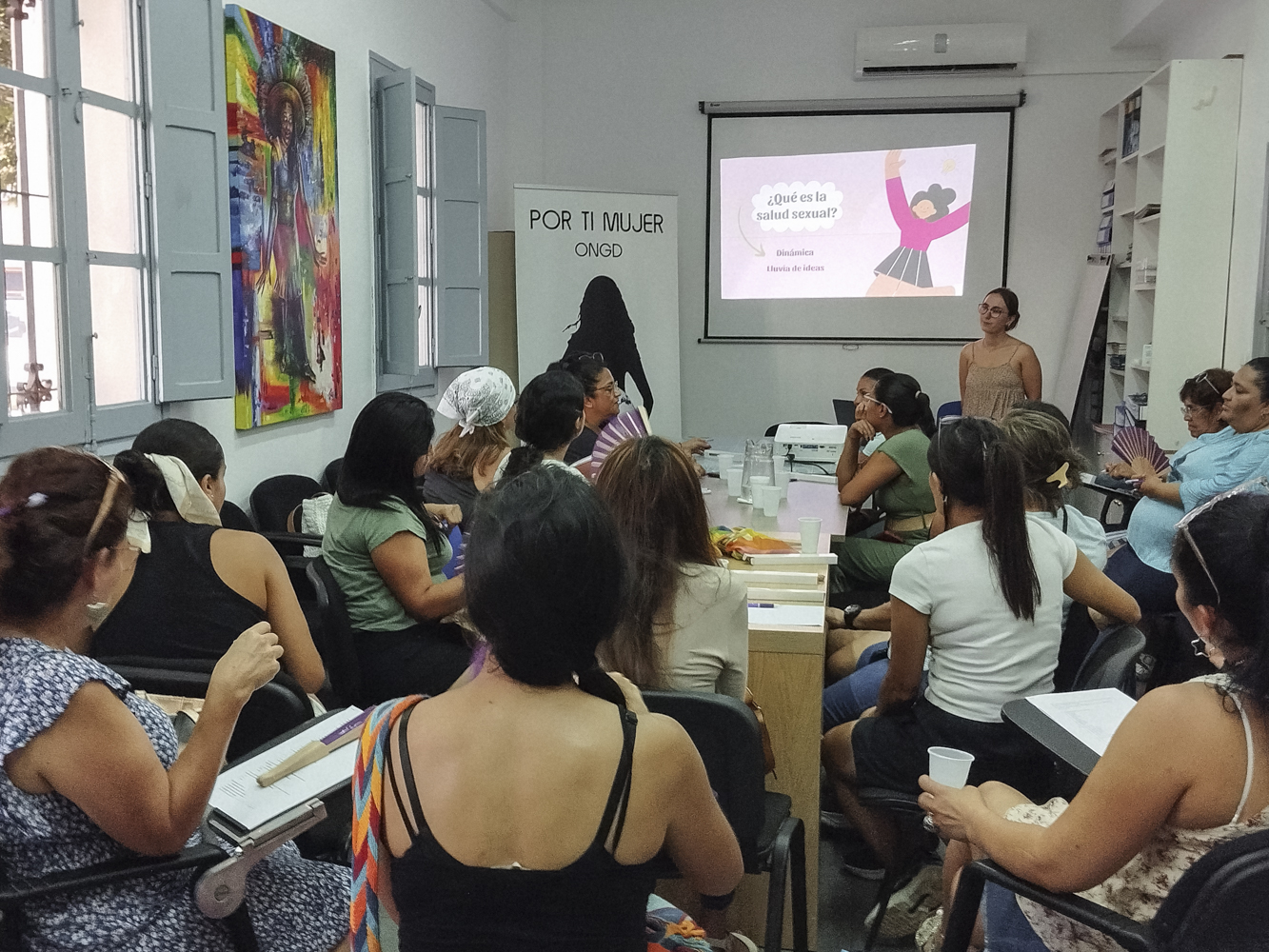
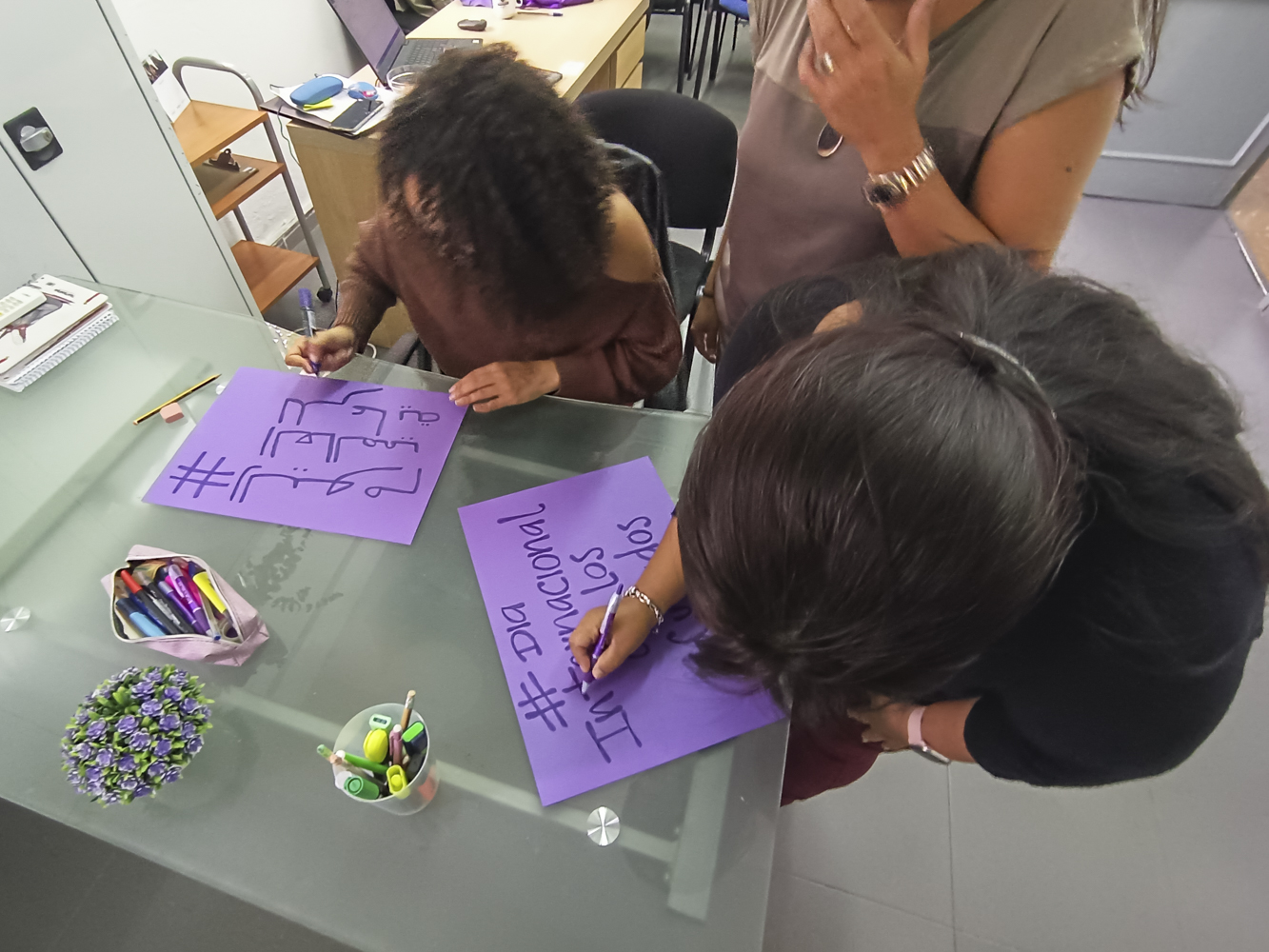
This multitude of situations underscores the institutional violence experienced by migrant women, the discriminatory nature of these institutions, and their negative impact on women’s empowerment opportunities. They hinder real participation and inclusion in public spaces that shape their daily lives, such as school associations and neighborhood groups, where the majority of participants are native-born.
What do migrant women do with the frustration, uprooting, and hopelessness that permeate their lives, often trapping them in a cycle from which escape seems impossible? Feeling excluded from a system that constantly marginalizes them and denies them full enjoyment of their rights as citizens, compounded by institutional racism, culture shock, and administrative obstacles, generates an environment where their opinions are deemed invalid and inconsequential in effecting change within the host society.
These daily challenges erode their trust in institutions, leaving them with minimal faith in their leaders. Consequently, their participation in political decision-making spaces is virtually nonexistent. In response to this multiplicity of social, cultural, and circumstantial factors that contribute to their precarity, social organizations emerge as an alternative. They create safe spaces for women where they feel heard, valued, and can relate to others who share similar experiences.
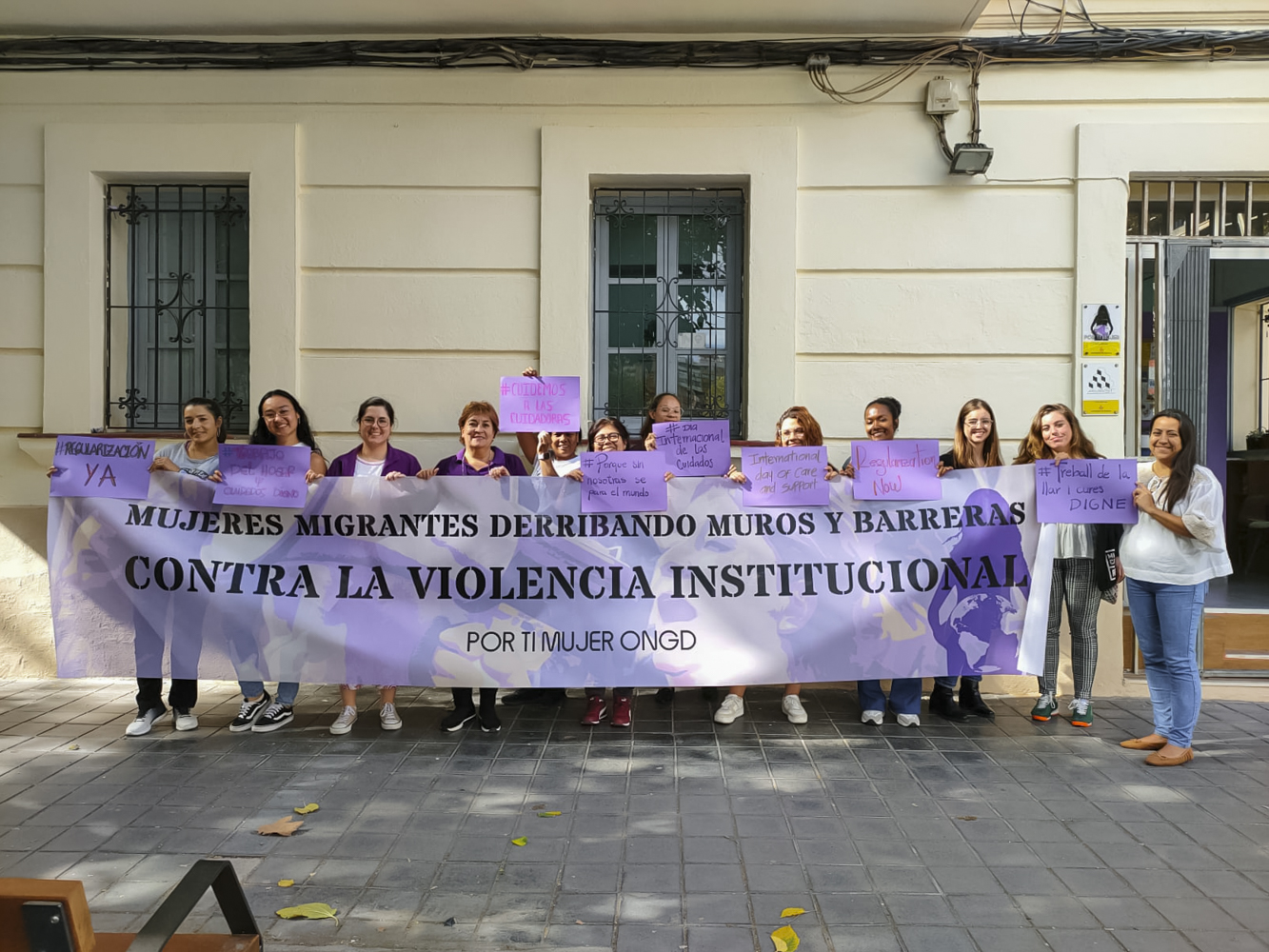
The images depict comrades who participated in the word circles of the “Por Ti Mujer” Association in 2023. These migrant women from the global south have found in these spaces a means of social participation, a way to cope with their migratory grief, and anopportunity to forge bonds of support and empowerment on a personal level. These spaces also facilitate their right to exercise citizenship in the host territory. The unity and support cultivated in these participation spaces promote the fight for women’s rights, equality, decent employment, the eradication of gender violence, and awareness of the double burden of domestic work.
These groups play a crucial role in laying the foundation and providing the necessary support and motivation for migrant women to engage in more formal participation spaces. Here, they learn about their rights, share successful advocacy practices, and interact with leading migrant women who have effectively exercised their rights as citizens.
While the right to participation is enshrined in various international documents, the reality remains stark. Globally, only 22.7% of parliamentary seats are held by women, with just six countries boasting 50% or more female representation. Achieving full parity could take until 2063 at the current pace. In Valencia, women occupy only 30% of positions in key areas of power, indicating a significant gender disparity.
In Spain, migrant women face additional challenges, with no statistics available on their political participation. Despite their contributions to society, many migrant women work in precarious conditions, making it difficult for them to aspire to decision-making roles.
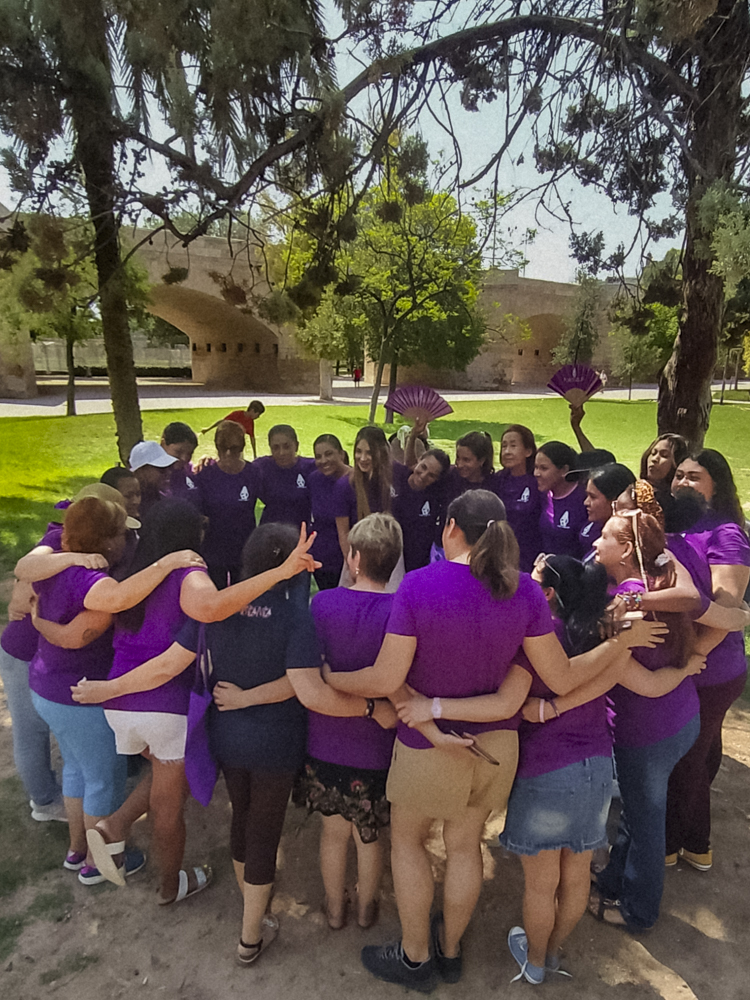
By highlighting the barriers that prevent migrant women’s participation in social, political, and community life, these advocacy spaces facilitate collective discussion on key issues, such as administrative challenges, inadequate housing, food insecurity, and the lack of support for family reconciliation.
Despite their experiences and expertise, immigrant women often find themselves excluded from decision-making spheres, hindering the full exercise of their citizenship rights. Therefore, recognizing immigrant women as agents of change and promoting their real political participation is essential for inclusive and comprehensive policymaking and true societal inclusion.
In light of the critical need to include immigrant women in decision-making processes, recognizing their invaluable experiences and contributions, it’s imperative that we take action in the upcoming EU elections. This moment presents a unique opportunity for all of us to contribute to a more inclusive, equitable, and diverse European society. On the 6-9th of June 2024, we have the power to support candidates and policies that prioritize the political participation and representation of immigrant women, ensuring their voices are heard and valued in the formulation of policies that affect their lives and the broader community.
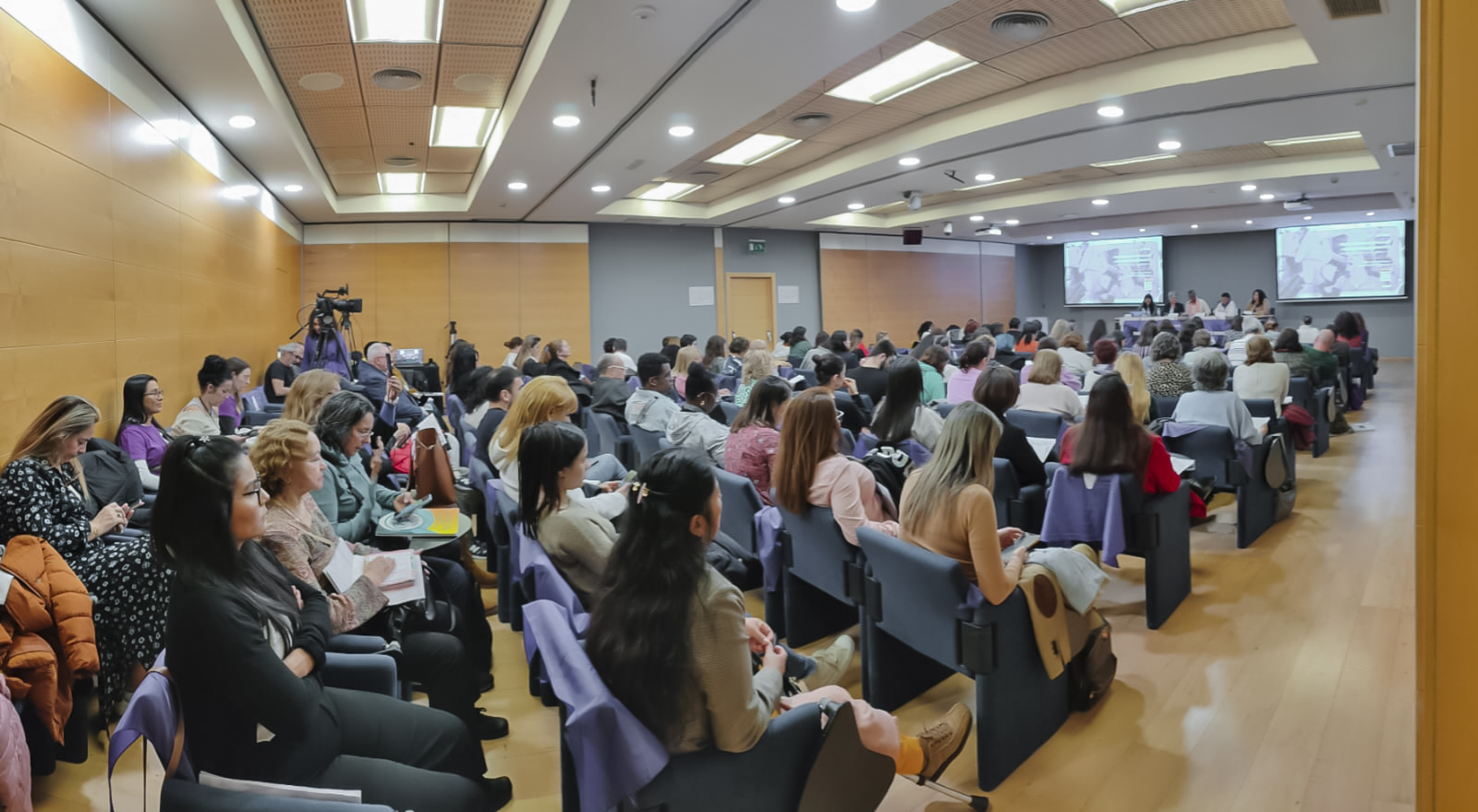
Let’s stand together to break down the barriers hindering immigrant women from fully exercising their citizenship rights. Your voteis a step towards promoting real societal inclusion, acknowledging the role of immigrant women as indispensable agents of change.
Make your voice count for those whose voices have been marginalized! This is your chance to bring change.
